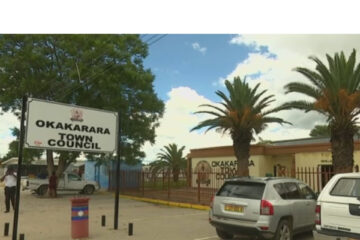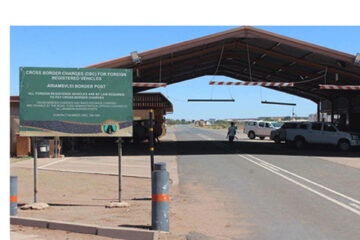We trust that the regional electors of the various parties understand that Namibia operates under a party system. The individuals sitting on town councils and in regional bodies could be anyone; it is the party that holds the seat, not the individual. When people who have been holding seats are not returned via their primaries to vie for those seats again, the policies, (failed or not) will be exactly the same.
If a region has no investments or high unemployment or escalating municipal bills or poor service delivery it is the party platform of the party of those on the council that can make a difference, not the individual taking up a seat. If the perceived demise of a particular town or village can be altered by merely changing the person in a leadership seat, then why didn’t the party members petition the party headquarters to make that change long ago?
Clearly, the near economic collapse of Namibia, exacerbated by the debilitating pandemic squeeze has nothing to do with the people sitting in various local and regional elected posts. Substituting one party cadre for another could be only local personality infighting, and not a substantive power shift.
If a particular party has always dominated the political climate in an area before the regional elections and that party continues to dominate the political climate after the regional elections, not a single thing will change. There will be different faces saying and doing the same things as before.
The national political party must have a platform and impetus that serves the regions and local authorities. The individuals implementing that platform can only do as directed to keep their seats. They cannot articulate an idea, a demand or a thought that is outside the national party’s scope and permission. Should they not toe the line,(even if a contradictory decision is demanded locally) the party will recall them. This has been done so many times before.
The individual that is charged with the implementation of a national party’s platform in local areas is almost irrelevant.
This is perhaps the biggest flaw in the current constitutional mandates about the party system and proportional representation. We believe that rural needs are best served by leaders elected by those people directly.
Several constituencies in their party conferences have not included their incumbent mayors and council members and regional representatives on their party lists in the primaries. There could be many reasons for this. But, if their ‘demotion’ is a response to the poor economic and desperate financial situation in these towns and cities, then changing people sitting in seats makes no difference whatsoever.
If the change in the constitution could be made where local fees are collectable for certain local decisions. And choices about the use of those fees can be taken at the local level only, then changing who sits in official seats could take on a truly local power dimension.
Clearly national subsidies for roads, infrastructure, power, water, health, police protection, housing and education will always be needed in regions and localities in Namibia and every other country in the world. A national highway coming through an area that is financed by national tax revenues cannot be decided by a local area’s leaders. Avoiding the demolition of a local iconic landmark while building that road must be the domain of local leaders. As it stands now, local authorities cannot successfully advocate local priorities unless the national party gives them leave to do so. This is a weakness in our current system.
If the party is responsible for the representatives implementing the programs, then how do local people who are not from that particular party, have their ideas heard? Is it really democratic to have those not of a particular party virtually silenced?
Just as we all elect our president as an individual, regional governors and councils should be elected the same way. Let city councils be responsible not to a national party headquarters in Windhoek, but to the leaders who live and work amongst them.
Unless the new faces in high places have the clout to make changes in their party’s platform and manifesto that help their region or town, any warm body in a regional office or councillor’s chair will do.



